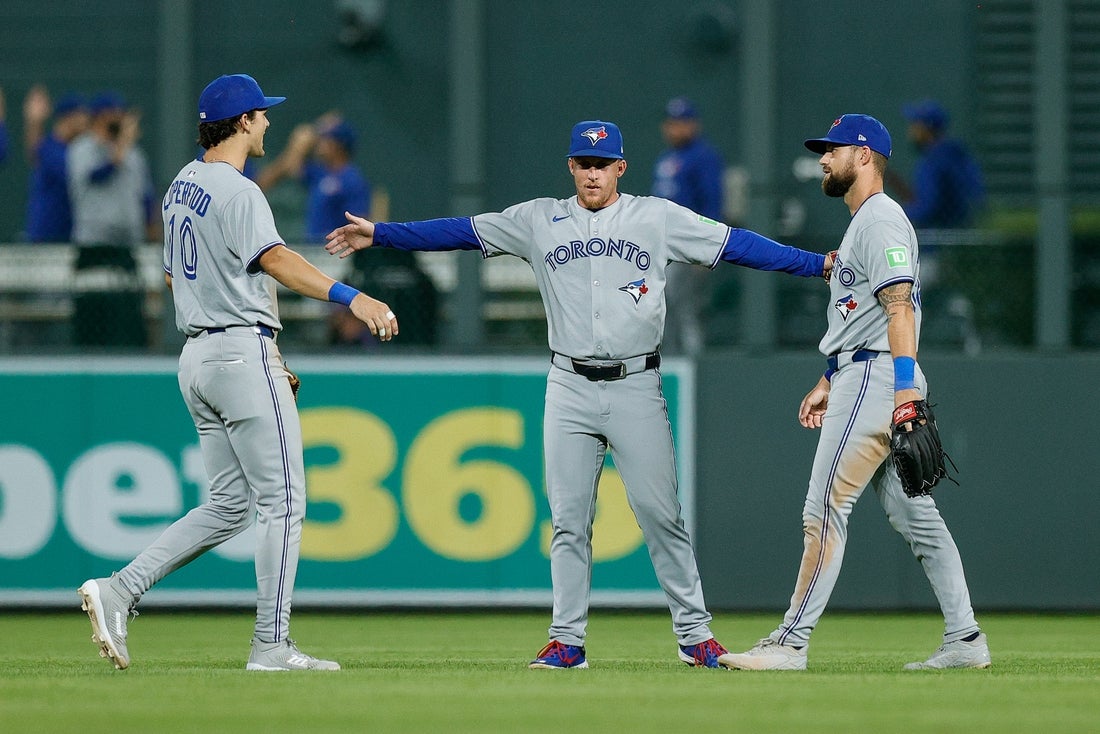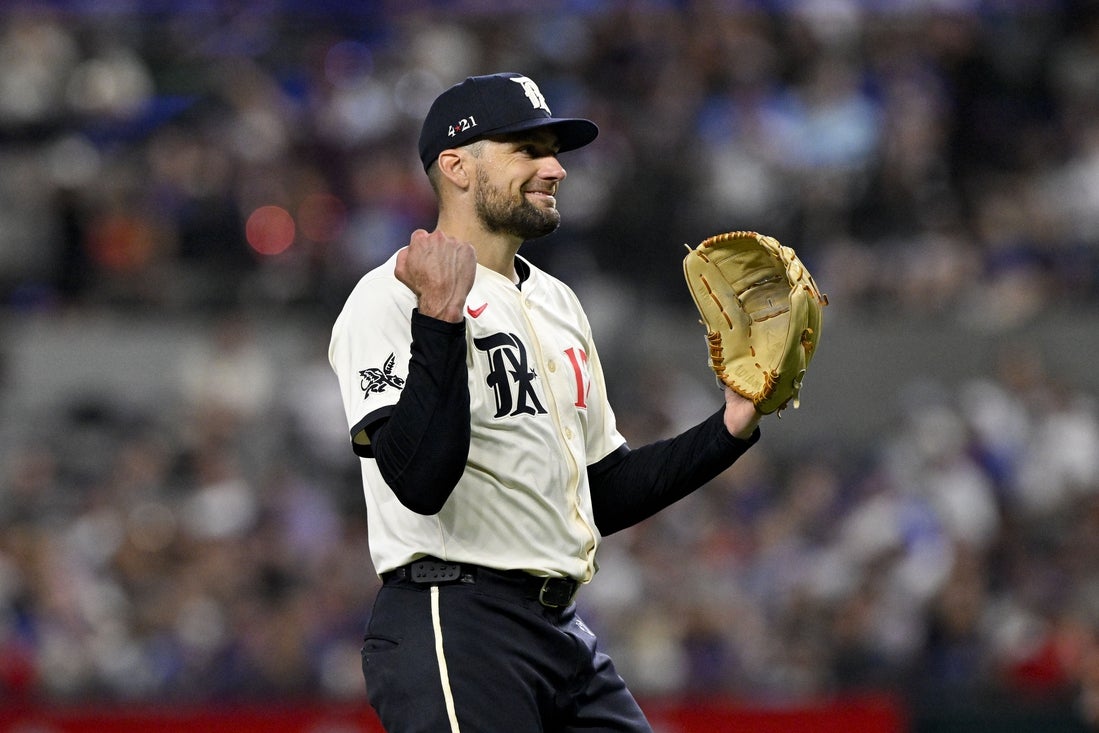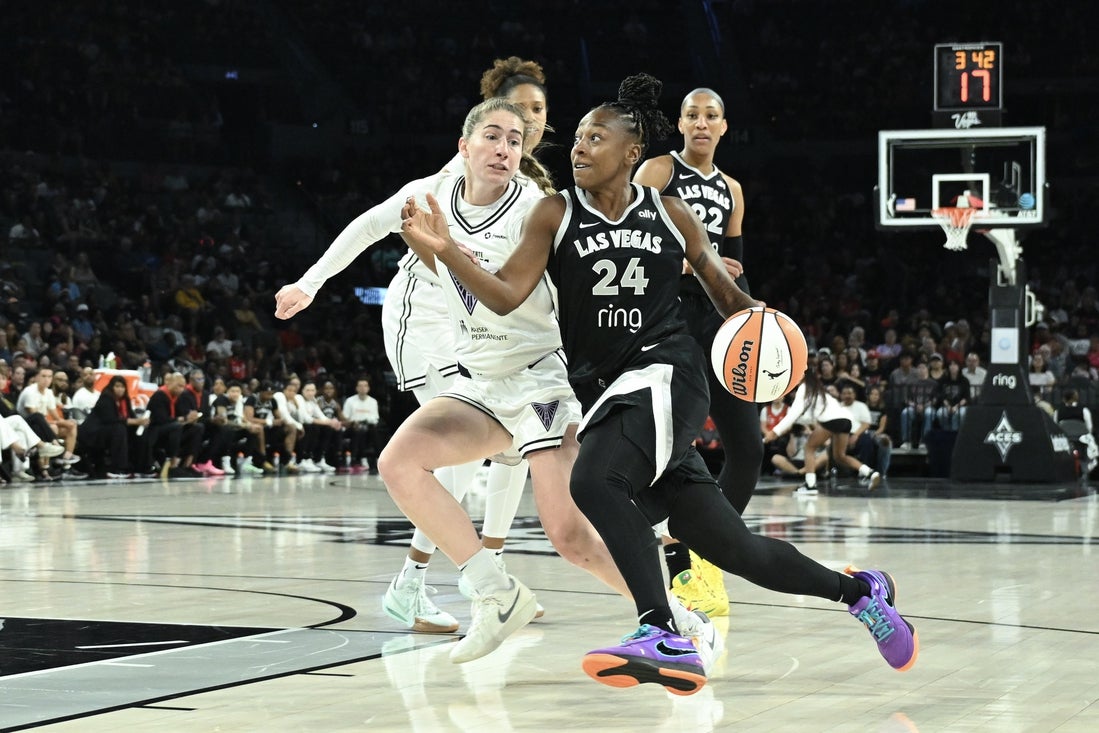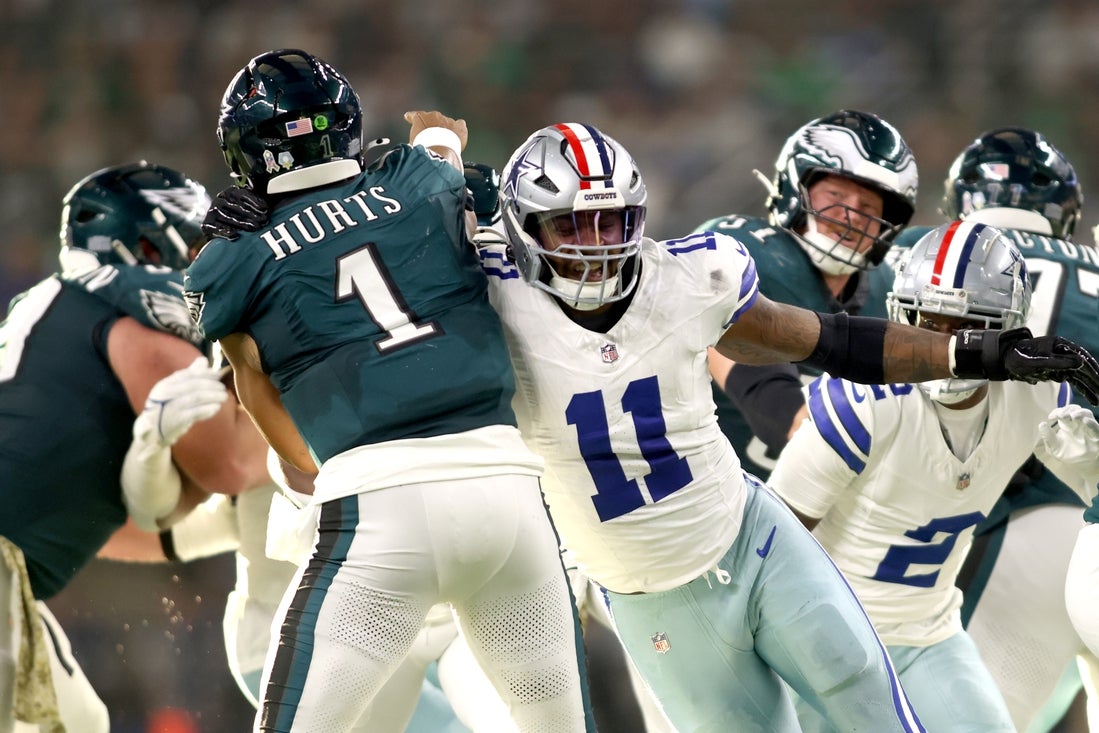All of Major League Baseball ought to be worried about the future amid Commissioner Rob Manfred’s brave new world of institutionalized gambling.
Gambling-related suspensions issued this season to two Cleveland Guardians pitchers represent what should be considered part of an existential crisis for MLB. And yet, the league acts as though the incidents are isolated and have limited consequences. On the contrary: This isn’t something that can be fixed with periodic investigations and individual suspensions, even if they’re for life.
MLB placed All-Star relief ace Emmanuel Clase on non-disciplinary paid leave Monday while it investigates possible violations of the league’s gambling policy. Clase’s suspension came three weeks after the league did likewise to right-hander Luis L. Ortiz, one of Clase’s teammates. MLB reportedly sacked Ortiz after it connected two pitches he threw out of the strike zone to a high amount of gambling activity on whether those pitches would be called balls or result in a hit batter. MLB hires outside companies to monitor games and flag irregularities with wagering.
Both players face a lifetime ban if found guilty.
Major league ballplayers know the rules about betting on baseball. They’re not supposed to do it, and if they get caught, they lose their job. That hasn’t changed since the 1920s, when MLB codified language against league personnel betting on baseball in the wake of the Black Sox scandal. The pertinent rules are posted in every clubhouse, and every season the league talks with each team about why betting on games is wrong and what the consequences would be. No players can claim they were sick the day Rule 21 was taught.
Here’s what has changed: MLB’s relationship with gambling as individual states have legalized it. Betting activity has become so widely accepted socially that MLB itself partners with legal gambling businesses in financial agreements that generate hundreds of millions of dollars in revenue for the league. For decades, fans (or players) needed to take pains to find an illegal bookmaker who would take action on MLB games. While illegal gambling still exists, bettors today need look no further than MLB broadcasts to find information on how to start wagering.
No matter how much money MLB generates from legal gambling — or could — it’s not enough to make it worth it.
The pervasiveness of legal betting on baseball has created an environment where it’s clear more players feel comfortable enough to get sucked in. A year ago in June, Manfred issued suspensions to four players for violating Rule 21. A fifth player, Tucupita Marcano, was banned for life for betting on Pittsburgh Pirates games while on their roster.
No one has accused those players, nor Ortiz and Clase, of taking money to lose World Series games on purpose like Chicago White Sox players were said to do in 1919. But that doesn’t make the accusations against the modern players any less serious. There’s zero ethical difference between a player taking a bribe to lose a game in the World Series and one being bribed to throw a few pitches out of the strike zone in a regular-season game. Even with the latter, there’s no reason to accept that any part of any gambling player’s performance is honest or genuine. At the very least, a player throwing pitches out of the strike zone with gambling as a motivator has literally made it harder for their own team to win.
Another consequence of MLB being so cozy with gambling is how it’s affected players and their relationship with fans. Multiple stories have been told about the increase of verbal abuse players — and even their families — have suffered from gamblers who made a bad wager or two. Literal death threats have been made in some cases. All of the abuse gets amplified by social media, which partners with legal gambling to create a toxic environment that’s clearly not in players’ best interests.
Great system you’ve got here, Mr. Commissioner.
It seems to escape Manfred that the reason the job of baseball commissioner exists at all was because owners wanted to save the league from ruin during the Black Sox scandal. Manfred alone can’t be held responsible for states making gambling legal — although until his regime came along, MLB seemed to spend a lot of resources lobbying against it.
It just seems obvious that Manfred didn’t think gambling all the way through. Speaking of which, earlier this year Manfred removed Pete Rose from the league’s permanently ineligible list, even though Rose famously admitted he bet on baseball games he played in and managed. Manfred also removed Joe Jackson and the other deceased 1919 White Sox players from the banned list. His rationalization was that, since Rose and the others had died, they were no longer a danger to the league.
That’s debatable on multiple levels, given that Manfred’s action looks a lot like a posthumous pardon — even if he didn’t intend it that way.
Manfred has kept himself busy lately with a tour of MLB clubhouses where he tries to persuade players they should be agreeable to the hypothetical salary cap owners want to implement. It’s in the players’ best interest, you see, and would prevent the lockout the owners are planning after the 2026 season. Good times appear to be ahead in MLB.
Even worse than a potential lost season, MLB’s entire future is at stake because of gambling. It’s going to be difficult — if not impossible — to put the gambling genie back in the bottle. It’ll also be costly, with legal gambling accounting for a fresh revenue stream that’s come along as others have dried up.
It would be hard to give that up.
Kind of like a gambling addiction.





